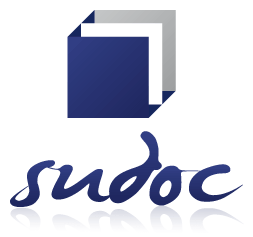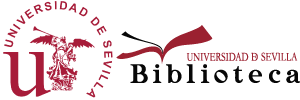Discapacidad y educación especial con presencia en la niñez: Análisis bibliométrico y temático (2009-2020)
Disability and Special Education with a Presence in Childhood: Bibliometric and Thematic Analysis (2009-2020)
Abstract
In the philosophical field and the social sciences, in particular from the critical perspectives to the advancement of the world / modern system, disability and special education are considered complex issues, framed in social processes and educational changes experienced at a global level. It uncovers the marginalization to which various sectors of the population are victims, particularly infants, while the international educational system is dictated by exclusionary and homogenizing patterns. For this reason, the main objective of the research is to investigate the scientific literature published in two databases (Web of Science and Scopus) during the chronological period 2009 to 2020, the conceptual categories disability and special education. The findings indicate a substantial increase in the production of articles during the year 2015 to 2018, with predominance in quantitative studies and theoretical review, which in synthesis support the need to advance in research with a social presence and claiming disability in the world. The article aims to offer an updated position on inclusion in the context of special education, advocating for a different educational alternative, with an integrative perspective, that leads to the rescue of human dignity, as well as the construction of a more society fair and equal.
Downloads
References
PALACIOS, Agustina. (2008). El Modelo Social de Discapacidad: orígenes, características y plasmación en la Convención Internacional sobre Derechos para personas con discapacidad. Madrid: CERMI.
ORGANIZACIÓN MUNDIAL DE LA SALUD. (2011). “Resumen del Informe mundial sobre la discapacidad” https://www.who.int/disabilities/world_report/2011/summary_es.pdfb
MARTELO, Raúl; MARRUGO, Yesid; FRANCO, David. (2021). “Educación y formación ciudadana: dimensiones filosóficas para su consideración”. Revista de Filosofía, Vol. 38, N° 99. https://doi.org/10.5281/zenodo.5676414
ESTAY SEPÚLVEDA; Juan Guillermo. “Vulnerabilidad y vulnerabilizados. una reflexión para la construcción de democracias y el multiculturalismo del tercer milenio”. Revista de Filosofía, Vol. 38, N° 99, https://doi.org/10.5281/zenodo.5641873
PARRILLA, María Ángeles. (2015). “Corrientes de pensamiento en los nuevos planes estudio: el Caso de la educación especial” Fuentes, vol. 1 n° 1, pp. 83-96. https://revistascientificas.us.es/index.php/fuentes/article/view/2293
MARCHESI, Álvaro & MARTÍN, Elena. (1990). Del lenguaje del trastorno a las necesidades educativas especiales. Madrid: Alianza.
GODOY, P., MEZA, M. & SALAZAR, A. (2004). Antecedentes históricos, presente y futuro de la educación especial en Chile. Santiago: Ministerio de Educación de Chile.
URIBE, Nicolás. (2011). “Adolescencia y ritos de transición. Una articulación del psicoanálisis postfreudiano y lacaniano”, Revista Colombiana de Ciencias Sociales, vol. 3 n° 2, pp. 1-33.
WOLFENSBERGER, Wolf. (1972). The Principle of Normalization in Human Services. Toronto: National Institute on Mental Retardation.
BAUTISTA, Rafael. (2002). Necesidades Educativas Especiales. Madrid: Aljibe
GODOY, P., MEZA, M. & SALAZAR, A. (2004). Antecedentes históricos, presente y futuro de la educación especial en Chile. Santiago: Ministerio de Educación de Chile
BLANCO, Rosa. (1999). Hacia una escuela para todos y con todos. Santiago: OREALC/UNESCO
TENORIO, Solange. (2005). “La Integración Escolar en Chile: Perspectiva de los Docentes sobre su Implementación”. Revista Electrónica Iberoamericana sobre Calidad, Eficacia y Cambio en Educación, vol. 3 n° 1, pp. 823-831.
BAUTISTA, Rafael. (2002). Necesidades Educativas Especiales. Madrid: Aljibe.
GARCÍA, Carmen. (1998). Una escuela común para niños diferentes: La integración Escolar. Barcelona: EUB.
WARNOCK, Margaret (1978) Special Educational Needs. London: Her Majesty's Stationery Office
MANGHI, D., JULIO, C., CONEJEROS, L., DONOSO, E., MORILLO, ML. & DÍAZ, C. (2012). “El Profesor de Educación Diferencial en Chile para el Siglo XXI: Tránsito de Paradigma en la Formación Profesional”. Revista Perspectiva Educacional, vol. 51 n° 2, pp. 46-71.
GODOY, P., MEZA, M. & SALAZAR, A. (2004). Antecedentes históricos, presente y futuro de la educación especial en Chile. Santiago: Ministerio de Educación de Chile
GARCÍA, Carmen. (1998). Una escuela común para niños diferentes: La integración Escolar. Barcelona: EUB.
BOOTH, Tony & AINSCOW, Mel. (2000). Índice de Inclusión: Desarrollando aprendizajes y participación en las escuelas. Dakar: UNESCO/OREALC.
HUGUET, Teresa. (2006). Aprender juntos en el aula: Una propuesta Inclusiva en el aula. Barcelona: Graó.
MONTERO, Ignacio & LEÓN, Orfelio. (2007). “A guide for naming research studies in Psychology”. International. Journal of Clinical and Health Psychology, vol. 7 n° 3, pp. 847-862.
CRANE, Diana. (1969). “Social Structures in a Group of Scientist: a test of the Invisible College Hypothesis”. American Sociological Review, vol. 34 n°3, 335-352. https://link.springer.com/article/10.1007/s12108-999-1007-5.
UNESCO (2017). Declaración de Salamanca: Crear sistemas educativos inclusivos y equitativos. Salamanca: UNESCO. https://es.unesco.org/sites/default/files/2019-forum-inclusion-discussion-paper-es.pdf































